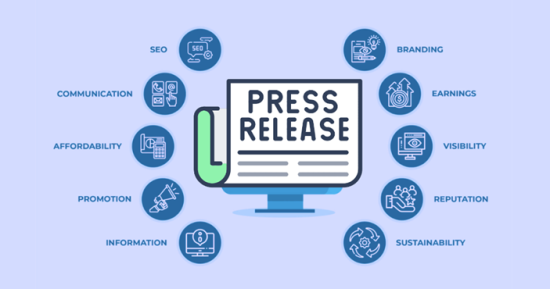
Starting your business journey usually begins with a great idea. However, finding the funds to start it without an investment can be hard. But, don’t be discouraged. Getting money for your startup without any money of your own is possible. Many have done it. They key is to have a strong business plan to show to potential lenders.
When looking into how to get a startup business loan with no money, a detailed business plan is vital. It’s more than a piece of paper. It’s the foundation that shows the potential of your business. Along with how risky you seem and if you have anything to offer as security, it can help you get the money you need to start your dream.
Key Takeaways
- Planning carefully is key when you don’t have money to start with.
- It’s important to know about your credit and what assets you can offer.
- Showing lenders a solid business plan is crucial to winning their support.
- Look into different ways of funding that are fit for startups.
- Clear communication and sound financial planning are vital for your business’s success.
Understanding Startup Business Loans

When you’re starting a new venture, knowing your funding options is key. Startup business loan options are a common choice. They give your company the push it needs to grow. We’ll look into small business loans for entrepreneurs and alternative funding for new businesses.
First off, different lenders may look at your loan request in varied ways. These include banks, online lenders, credit unions, and investors. They will want things like a solid business plan, your financial future, and if you have something valuable to put up. Your personal credit and the possibility of your business are also big factors.
- Business Plan: Your roadmap to profitability, including market analysis, products, and operational strategies.
- Financial Projections: A forecast of your financial performance, demonstrating your venture’s potential viability.
- Collateral: Assets you offer to secure the loan, providing lenders reassurance against loan default.
Starting a new business can be risky, so you might have to personally guarantee the loan. This is especially true if your business is new and doesn’t have an earning track record. Keeping a close eye on your business’s money and how you spend it is key. This helps you make the loan payments on time.
Alternative Funding Sources:
Although traditional loans are popular, looking for alternative funding for new businesses can also be good. This could mean getting help from angel investors, venture capitalists, or using crowdfunding sites. Each option helps at different stages of business growth and offers a different amount of money.
“Strategic funding choices can significantly enhance your startup’s ability to scale and succeed amidst competitive pressures.”
Talking to lenders or investors means more than just asking for money. It’s about keeping in touch and understanding what they need from you. Whether you pick a standard loan or try something new, it’s important that your money plan lines up with your business goal.
When deciding on a startup business loan option, think about what your business really needs. Look at the risks and your chances for growth. Getting funding can be complicated, but it’s also where new business ideas start. A strong business plan, checking out different ways to get money, and being smart with your money are your best tools. They set your startup up for success.
How to Get a Startup Business Loan with No Money
Obtaining a startup business loan without big funds may seem tough. But, knowing what lenders look for and showing a strong business plan can really help. This boosts your chance of getting the loan you need.
Eligibility Requirements for No-Money Funding
To obtain a business loan with no money, it is essential to fully understand the lender’s criteria. These usually include factors such as how long your business has been operational, the robustness of your business plan, and your personal credit history, along with any assets you might pledge as collateral. It’s crucial to convince lenders of your business’s viability and ability to repay the loan. Demonstrating a steady cash flow, even if minimal, can help substantiate your repayment capacity.
Lenders might also look for a solid personal or business credit history, which reassures them of your financial responsibility. Present any potential guarantors or co-signers, as their backing could strengthen your application. Highlight any past successful business ventures or experiences that showcase your business acumen. Ensure all legal and financial documents are organized and readily available to expedite the review process.
Strategies for Presenting Your Business Idea
Securing a startup loan without initial funds hinges on how effectively you present your business idea. Understanding your market deeply, showcasing your competitive edge, and demonstrating unwavering belief in your business is critical. These factors collectively convince lenders of your business’s potential and your commitment to its success. Data and market analysis support your claims and show thorough market understanding. Please explain how your product or service fits into the current market and how it stands out from competitors.
Offer a straightforward, compelling narrative that connects emotionally with lenders, making the case for why your business deserves funding. Discuss your long-term vision for the company, including how you plan to scale and manage growth sustainably. Prepare to answer tough questions about risks and potential setbacks, showing that you have considered and prepared for possible challenges.
Developing an Irresistible Business Plan

An effective business plan is crucial to fund your startup without initial capital. Your plan should convincingly outline your business’s potential for profit, identify critical market gaps you intend to exploit, analyze your competition, and project realistic financial growth. Such a detailed and ambitious plan significantly enhances your chances of loan approval. Ensure your business plan is theoretical and includes practical steps for achieving each milestone.
Use clear, concise language and avoid jargon to make your plan accessible to all potential lenders. Add visuals like charts and graphs to illustrate points and make the data easily digestible. Discuss any partnerships or alliances that can leverage your business position and contribute to its success.
Provide detailed, realistic financial projections with best-case and worst-case scenarios to demonstrate thorough planning. Finally, outline clear, actionable steps for managing cash flow, especially in the initial stages of business operation, to reassure lenders of your financial management prowess.
Bootstrap Financing for Startups
Looking into bootstrap financing for startups lets you see its value in a unique way to get funds. It uses your own money or what your business makes to grow. This means you can build your business without needing outside help immediately. But, it might slow down your growth a bit.
This method is valuable beyond starting with no money. It teaches you to be smart about your spending and how to run a tight ship. Putting money back into your business helps you become stronger financially over time. But, it does take a lot of hard work and guts to do it without extra help right away.
| Bootstrap Financing Method | Benefits | Challenges |
|---|---|---|
| Personal Savings | Full control with no equity lost | Limited resources might inhibit rapid growth |
| Revenue Reinvestment | Compounds business capabilities financially | Continual cash flow required to sustain operations |
| Cost-cutting | Encourages lean operations | Potential compromise on quality or scaling efforts |
Exploring bootstrap financing for startups is a testament to your skills and a test of your will. By getting good at this, you not only handle your money well. You also lead your business to a future where it stands strong on its own and keeps growing.
Creative Ways to Fund a Startup
Starting a business without any first funds can seem hard. But, there are now many creative ways to fund a startup. These ways help lots of new companies get going even without a big financial start.
Looking for alternative funding for new businesses is smart. It means checking out different, innovative options. This lets you start a business in new and exciting ways.
- Business Credit Cards: Business Credit Cards is a practical choice for short-term needs, allowing you to manage cash flow and earn rewards.
- Angel Investors: These are individuals who provide capital for a startup, usually in exchange for convertible debt or ownership equity.
- Venture Capitalists: Firms that manage pooled funds from many investors to invest in startups and small businesses.
- Microloans: Offered by organizations like the Small Business Administration, these can be a boon for businesses not qualifying for traditional bank loans.
- Crowdfunding Platforms: Sites like Kickstarter allow you to present your business idea to the public, who can contribute financially towards your startup.
- Peer-to-Peer Lending: Through platforms like LendingClub, you can obtain loans directly from individuals without the intermediation of a financial institution.
| Funding Type | Pros | Cons |
|---|---|---|
| Business Credit Cards | Immediate access, flexibility, rewards | Potentially high interest rates |
| Angel Investment | Large sums, mentorship opportunities | Equity relinquishment |
| Venture Capital | Significant funding, expertise and network access | Intensive scrutiny, significant equity stakes |
| Microloans | Smaller, manageable loans, often with lower interest rates | Limited funding amounts |
| Crowdfunding | Broad exposure, market validation, no repayment required | Success not guaranteed, platform fees |
| Peer-to-Peer Lending | More accessible, fixed repayment terms | Interest rates can be high depending on credit risk |
Understanding your startup’s financial needs and options is crucial. Budgeting creative ways to fund a startup can help your business grow. It ensures you start out with strong financial and community support.
Business Loan Criteria and Calculations
When starting a new venture, it’s vital to know what lenders look for. They assess if you can pay the loan back. We will look at how they evaluate your financial situation.
Assessing Your Repayment Capacity
Firstly, you need to understand your finances to manage a loan. You must know where money comes from and every dollar that goes out. This way, you can figure out the right loan amount without hurting your business’s cash flow. Getting this right means a less stressful start for your business.
Understanding Lender’s Loan-Value Ratios
Lenders use specific calculations to see how much to lend you. They check things like your income compared to debt. A good income-to-debt score means you can pay back what you owe without trouble. This is essential for your loan request’s success.
Here’s a simple guide to these calculations:
| Financial Metric | Description | Why It Matters |
|---|---|---|
| Debt Service Coverage Ratio (DSCR) | Net Operating Income / Total Debt Service | Shows if you have enough cash left after paying debts. |
| Debt-to-Income Ratio (DTI) | Total Monthly Debt Payments / Gross Monthly Income | Tells how much of your income goes to debt. |
Learning these financial parts can help your loan application. With good planning and the right numbers, your business can get the loan it needs.
Alternative Funding Sources for New Businesses

It’s vital to look at different ways to fund new businesses. Besides banks, options like microloans for small businesses, crowdfunding for startups, and peer-to-peer lending for new businesses are becoming more popular. These methods provide money and help your business get noticed, whether locally or online.
Exploring Microloans for Small Businesses
Microloans help small businesses that might not get big loans. They offer small amounts of money for things like inventory or working capital. They come from organizations and government programs that want to help the community.
Navigating Crowdfunding and Peer-to-Peer Lending
Crowdfunding is more than just about the money; it’s about showing off your idea and getting the community excited. It lets people from around the world help fund your project in exchange for special offers. Peer-to-peer lending works in a similar way, connecting people who need money with those wanting to invest, avoiding traditional banks.
| Funding Source | Typical Loan Amount | Interest Rates | Repayment Terms |
|---|---|---|---|
| Microloans | Up to $50,000 | 5-12% | 1-6 years |
| Crowdfunding | Variable | N/A | N/A |
| Peer-to-Peer Lending | $2,000 – $40,000 | 6-36% | 1-5 years |
Learning about microloans for small businesses, crowdfunding for startups, and peer-to-peer lending for new businesses helps in finding money. Each way has its own benefit for various business needs. Think about what your business needs and its future, along with whom you want to involve.
Securing Funding with Zero Initial Capital
Starting a business without money at the outset might seem daunting. But, with the correct approach, it’s not impossible. By knowing how to fund your venture, you can achieve your start-up goals.
Understanding the landscape of getting a startup loan without money is key. Don’t think your business dreams are unreachable without a large pile of cash. There are ways to fund your venture that fit your unique situation.
- Offering Collateral: Use what you own as loan security. This shows lenders you’re committed, helping your loan get approved.
- Considering a Cosigner: A co-signer with good finance can boost your loan approval odds. It gives lenders extra assurance.
Finding finance without any initial capital becomes doable by using the right approaches. Check out options like equipment financing and invoice financing. They care more about your assets than your income. A good choice if you have valuable equipment or solid customer base.
Watch your cash flow and handle assets wisely. It keeps your financial health steady and impresses lenders. Making progress this way helps in getting that startup loan, paving the way for business growth.
With a keen understanding of funding strategies for startups and a strong plan, you can successfully launch your business without upfront cash. Proceed with confidence and the planning needed to excel in today’s challenging market.
Risks and Benefits of Startup Loans

When you start a business, you might look into getting a startup loan. Knowing the risks and benefits of startup business loans is key. Loans can help your business grow and build credit. But, they also come with downsides, such as high interest rates and the need for assets or personal promises. It’s important to use loans wisely.
Evaluating the Impact of Debt on Your Startup
Debt can really change your business’s money situation. The impact of debt on business is big; it affects how money moves and can make business ownership complex. It’s key to think about what debt means for your business long-term. Will it take away needed money from other ways your business could grow? These are important questions.
Ensuring Loan Repayment Fits Business Goals
Making sure you can pay back your loan is crucial. Fit your debt with what your business can afford, based on your expected income and how your business will grow. This way, managing your finances won’t be so tough. It’s about using the loan to help meet your business’s goals, not going against them.
Lenders look at important factors that could impact your debt experience. They include how much you pay in interest, how and when you pay back, if you need to promise assets, and personal promises about the loan.
| Consideration | Impact | Strategic Importance |
|---|---|---|
| Interest Rates | Overall cost of borrowing | Securing the lowest rate minimizes outgoing expenses |
| Repayment Terms | Cash flow management and financial stability | Matching with your cash flow helps in a smooth payment schedule |
| Collateral Requirements | Assets at risk | Knowing about asset use and preparing for tough times is important |
| Personal Guarantees | Personal financial risk | They help protect your personal assets as much as possible |
Getting these things right can make paying back your loan much easier. It’s always good to know both the risks and benefits of startup loans. This knowledge can lead you to smarter financial choices.
Small Business Loans for Entrepreneurs
Starting a business? Knowing your financing options for startups is key. Looking into small business loans for entrepreneurs is a smart first move. It helps you kick off your business without piles of cash upfront.
Some think it’s hard to get a business loan when you have little to no money to start with. But there are many loan types perfect for startups. These options like microloans, equipment financing, and invoice financing are not your typical loans. They are set up to help new businesses with their early needs. Microloans, equipment financing, and invoice financing look at different things to decide if you qualify. They might check your credit, the value of what you’re buying, or consider future payments you’re owed. This makes them great for new businesses that are still growing their profits.
- Microloans offer small sums of money, good for those businesses starting small.
- Equipment financing is specifically for buying big machines or tech. The loan is tied to the equipment, which makes it less risky for the lender.
- Invoice financing lets you get paid on your future sales now. It keeps your cash flow going, which is crucial when starting out.
These financing options are crucial for essential startup costs. They help with daily operations, buying products, or funding your business basics. We have a table below that shows these different loan options. It can help you pick the best one for your startup’s unique needs.
| Type of Loan | Key Benefits | Typical Loan Amount | Suitable for |
|---|---|---|---|
| Microloans | Lower amounts, less stringent eligibility criteria | Up to $50,000 | Startups and small businesses needing initial seed money |
| Equipment Financing | Financing up to 100% of equipment cost, secured loan | Varies based on equipment cost | Businesses needing specific machinery or technology |
| Invoice Financing | Immediate cash flow, not dependent on credit score | Depends on invoice amounts | Businesses with reliable customers but long payment cycles |
Choosing the right loan type is critical for your business’s success. Think about your business’s needs and what you can provide. Understand how you’ll pay it back. With the right strategy and knowing your options, you can get the funding you need for your business.
Detailed Startup Business Plan for Beginners

If you’re new to starting a business, understanding how to create an startup business plan for beginners is key. This plan should be useful for you and look good to people who might give you money. Let’s break down how to get started.
Outlining Your Market Analysis
The start is crafting a deep market analysis for new businesses. You need to know your customers and what other companies do. Also, look into market patterns and who your customers are. This research helps shape your business’s path and how you present your product or service to the world.
Financial Projections and Budgeting
Next up, you must have financial projections in business plans. Think of these as detailed guesses about how your business will do, money-wise. It covers what you might earn, spend, and how much you might make over some time. Also, show how you will spend any money you get. This part is crucial. It tells investors or lenders that you have a smart plan for how to handle money.
Here’s a simple breakdown of what your business might cost at first and what you could earn:
| Cost Type | Year 1 | Year 2 | Year 3 |
|---|---|---|---|
| Startup Costs | $50,000 | $20,000 | $10,000 |
| Operational Costs | $100,000 | $150,000 | $200,000 |
| Revenue | $120,000 | $300,000 | $500,000 |
| Profit | ($30,000) | $30,000 | $290,000 |
With a robust market analysis and smart financial planning, your business plan leads the way for growth and success. It makes your project interesting to those who might invest in or loan you money. Remember, a solid business plan not only helps you steer your business but is also vital for getting the money you need to start and grow.
Conclusion
Starting your own business needs a clear plan, especially for startup financing strategies. It’s important to know how to get a business loan, even if you don’t have any money. Things like your credit score, your business idea’s uniqueness, and a strong business plan will influence if you can get a loan. Looking at various loan options, from small loans to crowdfunding, might just be what your startup needs.
How you manage the money in your business will really define its success. Creating a detailed business plan is crucial; it’s not just paperwork. It helps guide your financial decisions, making it easier for others to understand and believe in your business. Figuring out how much you need to borrow and planning how to pay it back are critical. This should match your business’s path to success and its financial well-being.
It doesn’t matter if you choose a traditional loan or a new way to fund your business. It should all fit your business’s goals and how it operates. Keeping good financial records, presenting your plan well to lenders, and wisely using any money you get will help you succeed. Always monitor how your business is doing, keep talking to your financial backers, and you’ll feel more sure about how to handle your business’s finances.
FAQs on Startup Funding
How can I secure funding for a startup with zero initial capital?
Securing funding with no money up front takes creativity. Use your personal resources wisely. Offering collateral and involving cosigners can help. Also, knowing about microloans, crowdfunding, and peer-to-peer lending is important.
What are the eligibility requirements for obtaining a startup business loan without money?
Lenders look for a solid business plan and your credit history. They might also need collateral and a personal guarantee. They want to see your business idea’s strength and market potential too.
What strategies can I use to present my business idea to potential lenders or investors?
To sell your idea, know your market well and explain your edge. Show your commitment and the ROI. A detailed business plan is key to success.
How to get a startup business loan with no money and bad credit?
Getting a startup business loan with no money and bad credit can be challenging, but there are strategies you can use. First, focus on improving your credit score by addressing any outstanding debts and maintaining regular, on-time payments. Secondly, consider finding a cosigner with a strong credit history to enhance your loan application’s credibility. Explore alternative financing options such as microloans from non-profit organizations, crowdfunding platforms.






